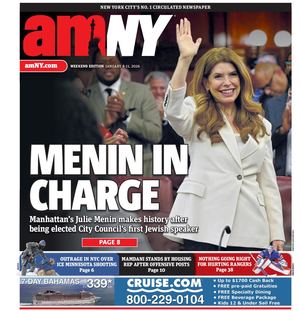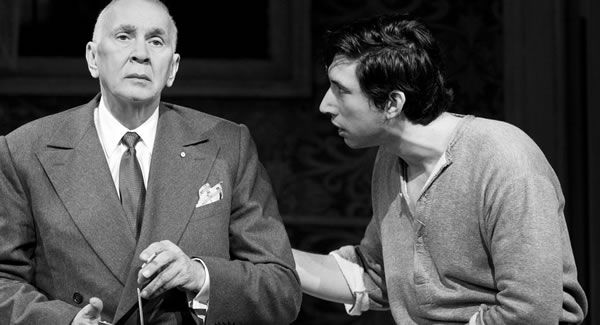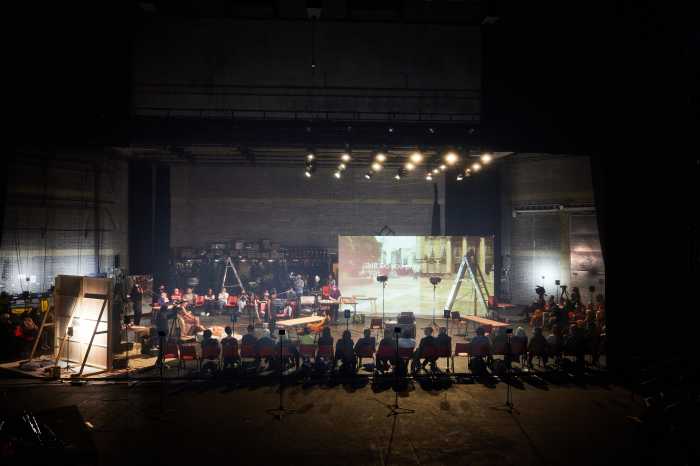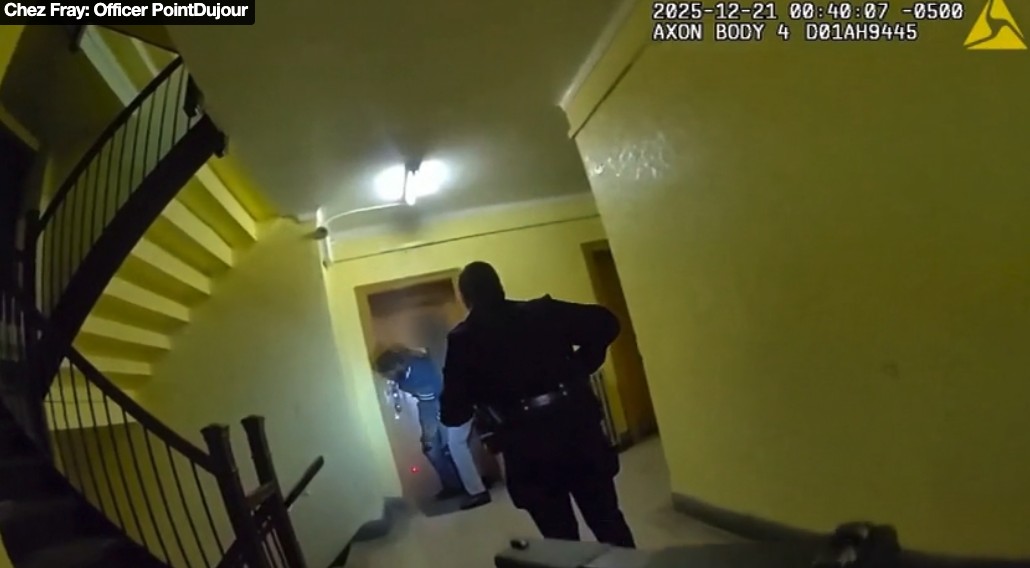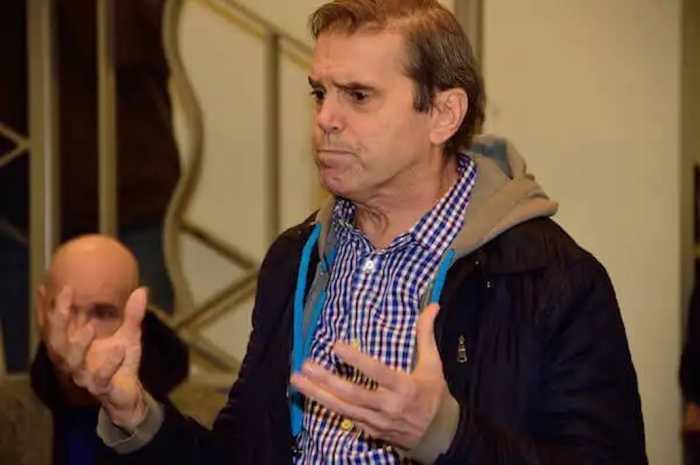THEATER SPECIAL

Photo by Joan Marcus
Frank Langella, as Gregor Antonescu; Adam Driver, as Basil Anthony…or is he?
Terence Rattigan revival gets to the heart of our DNA
BY CHRISTOPHER BYRNE
Could there be a better time to revive “Man and Boy,” Terence Rattigan’s obscure amorality tale from 1963 about an international businessman in the final spasms of brinksmanship as his empire collapses? Probably not. Could there be a better actor than Frank Langella to embody the ruthlessness, desperation and strategizing all with an impeccable sang-froid? Decidedly not.
Under the precise and thoughtful direction of Maria Aitken, Rattigan’s play — a combination of thriller, family drama and social commentary — is vibrantly alive and wonderfully understated. It is a well-made play in a well-mounted production, but beyond that, it’s also entertaining and thought-provoking.
The play is set in 1934, and Langella plays Gregor Antonescu, a wildly successful businessman credited with saving Europe after World War I. If his means are shady, the ends have justified them –– at least until the opening of the play, when it seems the health of the global markets rides on his ability to forge an unlikely merger.
Gregor seeks refuge from the media and arranges a meeting with the man he must come to terms with, Mark Herries, at the down-at-the-heels Greenwich Village basement apartment of one Basil Anthony. This seemingly incongruous meeting place makes sense when we learn that Basil is actually Vasily Antonescu, Gregor’s estranged son. There is no happy reunion in this story, however.
Basil abhors the actions that allowed his father to grow rich while others suffered, and yet he allows him to meet there. Gregor repays the filial favor by attempting — there’s no delicate way to put this — to pimp Basil out to Herries, a closeted homosexual, as the strategy for closing the deal.
Conventional thinking would find this shocking, but Gregor is anything but conventional. In fact, he’s a sociopath (one who has made people a great deal of money). No one wants to look too closely at his actions, and what might in other circumstances be seen as depravity is here considered a quirk.
Gregor cares about nothing but winning, and the people in his life find him at once irresistible and repellant. They are unable to disentangle themselves from him, but he engages with them only when they are useful to him. Rattigan’s investigation of the bargains people make and the games they play is fascinating.
Langella is at the height of his game in this role. He is perfectly in control, and every moment is rich in detail –– from the way he holds his hand in his jacket pocket to his gesture flicking a folder to the floor to the subtlety of Gregor’s unfolding plan. He’s so charming and persuasive it’s easy to see how an entire continent could fall under Gregor’s spell, blind to his pathological narcissism.
The supporting cast is very good as well. Zach Grenier is fascinating as Herries, a man who has the upper hand until Gergor finds his fatal flaw. Adam Driver is compelling as Basil, maintaining a strong sense of morality despite his seeming weakness. Michael Siberry, as usual, turns in an accomplished performance as Sven, Gregor’s right hand man, and Brian Hutchinson is appealing as Herrie’s accountant, David Beeston, Gergor’s first victim as the game unfolds.
It’s tempting to see this play through the lens of our own time, and it certainly resonates. Still, it’s more chilling to realize that while the trappings may change, the desire to win — at the expense of others — is as old as civilization. It is in our DNA, this drive to survive. We may be shocked at Gregor’s actions, but we can’t really be surprised. And against all odds, part of us wants him to win.
MAN AND BOY
Written by Terence Rattigan
Directed by Maria Aitken
Presented by Roundabout Theatre Company
Through Nov. 27
At American Airlines Theatre (227 W. 42nd St.)
Tues.-Sat. at 8pm; Wed., Sat., Sun. at 2pm
For tickets ($67-$117), visit roundabouttheatre.org or call 212-719-1300
